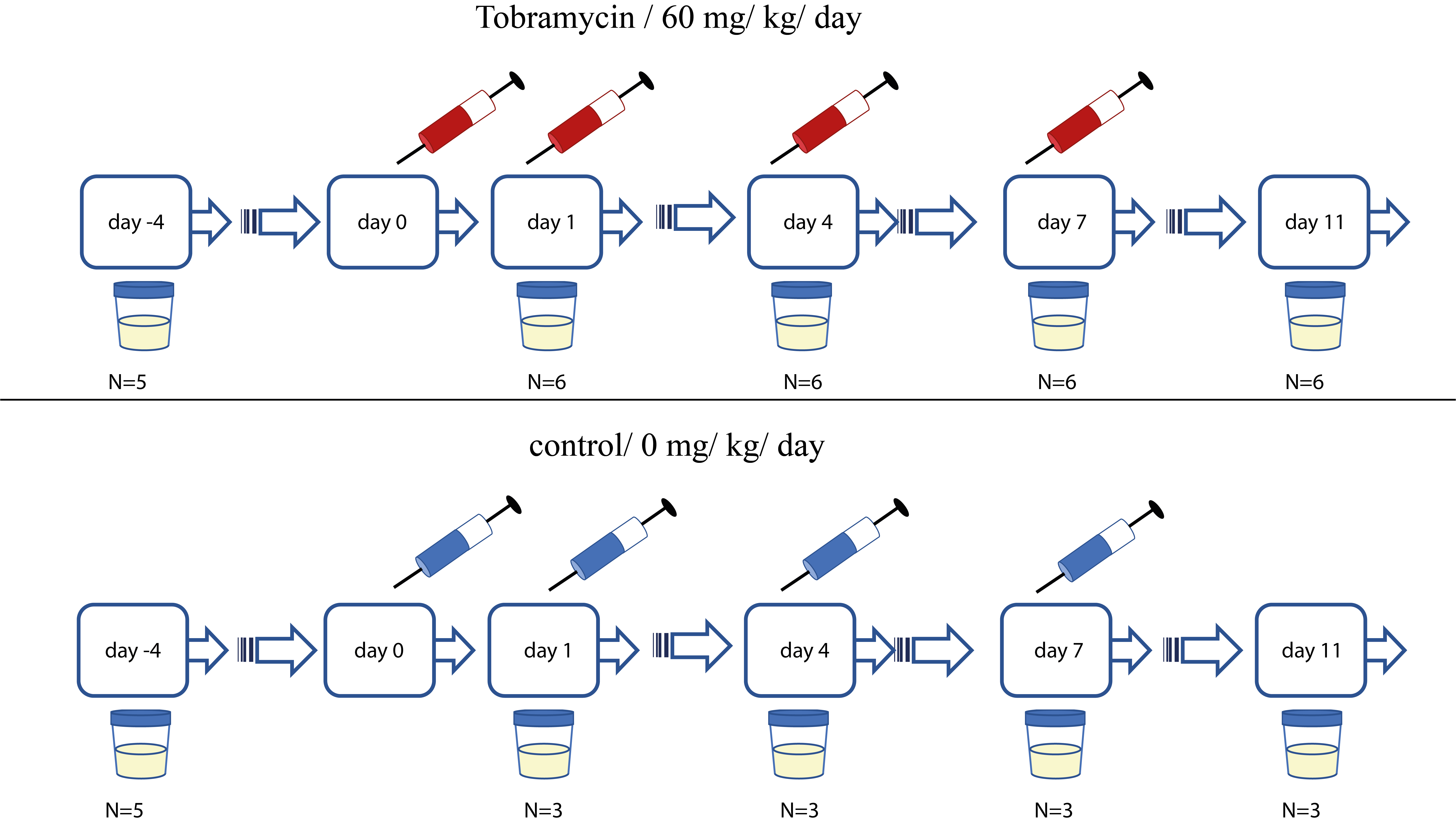Immunoaffinity proteomics for kidney injury biomarkers in male beagle dogs
DOI:
https://doi.org/10.17179/excli2023-6621Keywords:
drug-induced kidney injury, biomarkers, proteomics, immunoaffinity-LC-MS, safety assessment, kidney, quantitative proteomicsAbstract
Drug-induced kidney injury (DIKI) is a cause of drug development failure. Dogs represent a common non-rodent animal model in pre-clinical safety studies; however, biomarker assays for detecting nephrotoxicity in dogs are limited. To identify novel proteins and gain insight into the molecular mechanisms involved in DIKI, we developed an assay to evaluate proteomic changes associated with DIKI in male beagle dogs that received nephrotoxic doses of tobramycin for 10 consecutive days. Label-free quantitative discovery proteomics analysis on representative kidney cortex tissues collected on Day 11 showed that the tobramycin-induced kidney injury led to a significant differential regulation of 94 proteins mostly associated with mechanisms of nephrotoxicity such as oxidative stress and proteasome degradation. For verification of the proteomic results, we developed a multiplex peptide-centric immunoaffinity liquid chromatography tandem mass spectrometry assay (IA LC-MS/MS) to evaluate the association of eight DIKI protein biomarker candidates using kidney cortices collected on Day 11 and urine samples collected on Days -4, 1, 3, 7 and 10. The results showed that most biomarkers evaluated were detected in the kidney cortices and their expression profile in tissue aligned with the label-free data. Cystatin C was the most consistent marker regardless of the magnitude of the renal injury while fatty acid-binding protein-4 (FABP4) and kidney injury molecule-1 (KIM-1) were the most affected biomarkers in response to moderate proximal tubular injury in absence of changes in serum-based concentrations of blood urea nitrogen or creatinine. In the urine, clusterin is considered the most consistent biomarker regardless of the magnitude and time of the renal injury. To our knowledge, this is the most comprehensive multiplex assay for the quantitative analysis of mechanism-based proximal tubular injury biomarkers in dogs.

Downloads
Additional Files
Published
How to Cite
License
Copyright (c) 2024 Wael Naboulsi, Hannes Planatscher, Felix F. Schmidt, Andreas Steinhilber, Thomas O. Joos, Adeyemi O. Adedeji, James Eric McDuffie, Oliver Pötz

This work is licensed under a Creative Commons Attribution 4.0 International License.
Authors who publish in this journal agree to the following terms:
- The authors keep the copyright and grant the journal the right of first publication under the terms of the Creative Commons Attribution license, CC BY 4.0. This licencse permits unrestricted use, distribution and reproduction in any medium, provided that the original work is properly cited.
- The use of general descriptive names, trade names, trademarks, and so forth in this publication, even if not specifically identified, does not imply that these names are not protected by the relevant laws and regulations.
- Because the advice and information in this journal are believed to be true and accurate at the time of publication, neither the authors, the editors, nor the publisher accept any legal responsibility for any errors or omissions presented in the publication. The publisher makes no guarantee, express or implied, with respect to the material contained herein.
- The authors can enter into additional contracts for the non-exclusive distribution of the journal's published version by citing the initial publication in this journal (e.g. publishing in an institutional repository or in a book).





